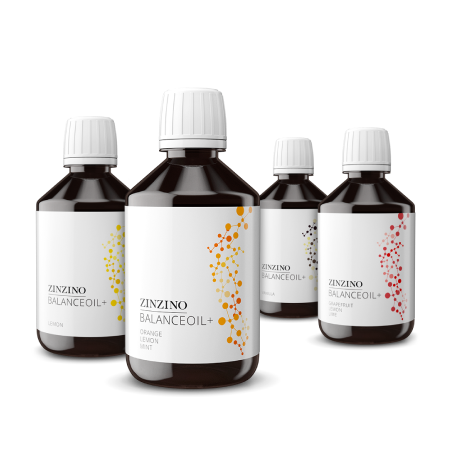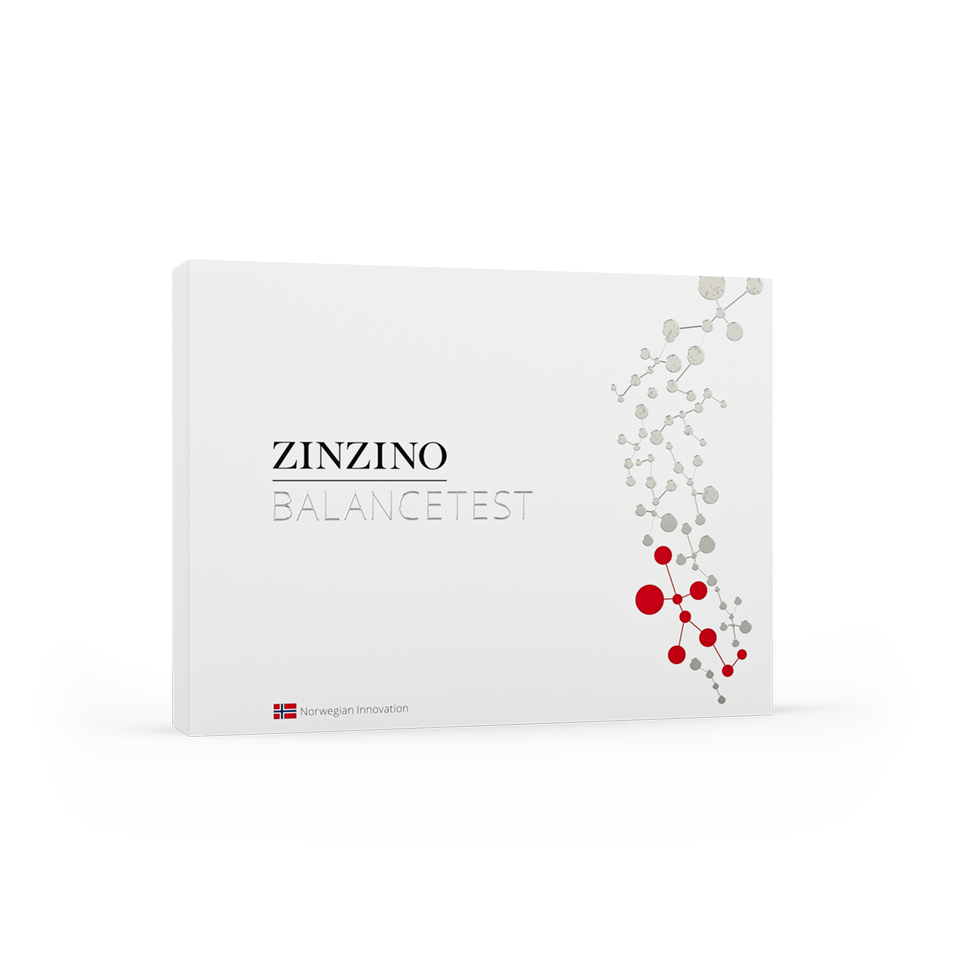Alina Leitinger
Zinzino Independent Partner
Benvenuto! Sono il suo consulente indipendente, qui per guidarla nel suo percorso di salute.
The Omega-3 supplement, unique for your body’s needs

Before increasing the intake of a nutrient with supplements, it’s important to research it as much as possible. This includes the nutrients like Omega-3, the essential fatty acids that can’t be made by the body and must be sourced through the diet. When answering questions like ‘Is Omega-3 bad for you?’, remember that anything in excess is unhealthy. The same can be said for the nutrients that are essential to the body.
Instead of talking about the pros and cons of Omega-3 fatty acids, it’s better to view it as what this nutrient can and can’t do. Omega-3 plays an important role in brain function, heart health, stabilizing blood pressure and supporting vision.
To leverage this essential nutrient, focus on its strengths and the approved list of benefits. It’s unreasonable to consume Omega-3 supplements and expect it to fix ailments. Fish oil has health-promoting properties that should be consumed in line with your body weight. It’s not a one size for all supplements.
Not all fish oils are the same
When learning about Omega-3 side effects, it’s vital to discern the way in which it’s delivered to the body. Buying just any standard, over-the-counter fish oil is never a good idea. The supplement needs to be high-quality and tailored to you. High doses of fish oil might cause belching, bad breath, heartburn, nausea, loose stools, rash, and nosebleeds. Always make sure to take your daily dose according to your body’s needs to prevent side effects from excess use which might reduce the immune system’s activity and reduce the body’s ability to fight infection.
Low-quality fish oil can also be contaminated with mercury and other industrial and environmental chemicals. Traditionally processed fish oils are worlds apart from a natural Omega-3 supplements backed by science, such as the Zinzino BalanceOil+. To remove any risk of side effects when taking Omega-3 fish oil, invest in a treatment that’s tailored to you, with pure ingredients molecularly tested for toxins.
The all-natural Polyphenol Omega BalanceOil+
BalanceOil+, which includes a vegan option, is no ordinary fish oil. It’s a food supplement high in olive polyphenol (antioxidants), Omega-3, and Vitamin D3. The polyphenols, sourced from pre-harvested olives, support your cells1 and Vitamin D3 introduces a host of benefits – aiding the immune system2, blood calcium levels3, bones4, teeth5, muscle function6, and cell division7.
Plus, the Omega-3 contributes to normal brain8 and heart function9, while safely rebalancing the off-center Omega-6:3 ratio. With a harmonious ratio (3:1, as advised by scientists), the body is better equipped to stay healthy and strong. BalanceOil+ has 15 EFSA-approved health benefits that you can enjoy from day one. Within five months of daily treatment, the Omega-6:3 ratio is brought back into balance.

Discover your current Omega-6:3 ratio
One proven way to eliminate possible side-effects is to take a dried blood spot test to learn your starting point, your Omega-6:3 ratio. The Zinzino BalanceTest measures 11 fatty acids in your blood and breaks down the current state of your health, including your ratio.
Once you know your Omega-6:3 ratio, the Zinzino BalanceOil+ is an easy, personalized way to bring the body back to its most natural state – simply by taking 0.15ml per kilogram of body weight. It’s a systematic, scientifically proven way to leverage all the benefits of Omega-3 (plus polyphenols and Vitamin D3), in just the right amount your body is calling for. BalanceOil+ is natural, keto-friendly, non-GMO, and derives oil from wild-caught small fish.
It’s the most efficient, ethical and sustainable way to harmonize your body and get an optimal mix of Omega-3 fatty acids, Omega-9, polyphenols, and Vitamin D3. It also comes in a range of different flavors for better taste.
There’s nothing quite like BalanceOil+.
* These statements have not been evaluated by the Food and Drug Administration. This product is not intended to diagnose, treat, cure, or prevent any disease.
1. Olive oil polyphenols
I polifenoli dell’olio di oliva contribuiscono alla protezione dei lipidi ematici dallo stress ossidativo. La sostituzione nella dieta dei grassi saturi con grassi insaturi contribuisce al mantenimento di livelli normali di colesterolo nel sangue. L’acido oleico è un grasso insaturo. Questa indicazione può essere impiegata solo per l’olio d’oliva che contiene almeno 5 mg di idrossitirosolo e suoi derivati (ad esempio, complesso oleuropeina e tirosolo) per 20 g di olio d’oliva. L’indicazione va accompagnata dall’informazione al consumatore che l’effetto benefico si ottiene con l’assunzione giornaliera di 20 g di olio d’oliva.
2. Vitamin D contributes to immune system
La vitamina D contribuisce alla normale funzione del sistema immunitario. Questa indicazione può essere impiegata solo per un alimento che è almeno una fonte di vitamina D come specificato nell’indicazione FONTE DI vitamina D di cui all’allegato del regolamento (CE) n. 1924/2006.
3. Vitamin D calcium levels
La vitamina D contribuisce a normali livelli di calcio nel sangue. Questa indicazione può essere impiegata solo per un alimento che è almeno una fonte di vitamina D come specificato nell’indicazione FONTE DI vitamina D di cui all’allegato del regolamento (CE) n. 1924/2006.
6. Vitamin D normal muscle function
La vitamina D contribuisce al mantenimento della normale funzione muscolare. Questa indicazione può essere impiegata solo per un alimento che è almeno una fonte di vitamina D come specificato nell’indicazione FONTE DI vitamina D di cui all’allegato del regolamento (CE) n. 1924/2006.
8. DHA contributes to the maintenance of normal brain
Il DHA contribuisce al mantenimento della normale funzione cerebrale. Questa indicazione può essere impiegata solo per un alimento che contiene almeno 40 mg di DHA per 100 g e per 100 kcal. L’indicazione va accompagnata dall’informazione al consumatore che l’effetto benefico si ottiene con l’assunzione giornaliera di 250 mg di DHA. L’assunzione di acido docosaesaenoico (DHA) da parte della madre contribuisce al normale sviluppo cerebrale del feto e dei neonati allattati al seno. Le donne in gravidanza e in allattamento vanno informate del fatto che l’effetto benefico è ottenuto con un’assunzione giornaliera di 200 mg di DHA in aggiunta alla dose giornaliera consigliata di acidi grassi omega-3 nell’adulto, che è pari a: 250 mg di DHA e acido eicosapentaenoico (EPA). L’indicazione può essere usata solo per alimenti che danno un apporto giornaliero di almeno 200 mg di DHA.
9. DHA and EPA contribute to the normal function of the heart
L’EPA e il DHA contribuiscono alla normale funzione cardiaca. Questa indicazione può essere impiegata solo per un alimento che è almeno una fonte di EPA e di DHA come specificato nell’indicazione FONTE DI ACIDI GRASSI Omega-3 di cui all’allegato del regolamento (CE) n. 1924/2006. L’indicazione va accompagnata dall’informazione al consumatore che l’effetto benefico si ottiene con l’assunzione giornaliera di 250 mg di EPA e di DHA.




Share this page
Or copy link